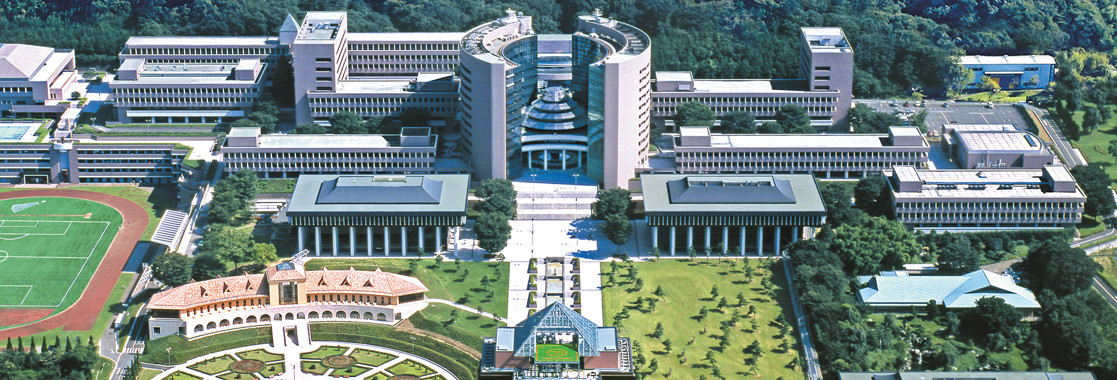
About TUT
Three Policies of School
General Admission Policy at Tokyo University of Technology
Tokyo University of Technology (TUT) considers for admission, across the board, those who will aspire to realize its fundamental mission. More specifically, it seeks those
(a) who are strongly motivated to apply themselves to the study and research in the fields of their choice, while pursuing their dreams and personal growth; and
(b) who wish to become creative educated individuals by fostering a sense of humanity as well as an awareness of ethics and to help to build a sustainable society.
General Curriculum Policy at Tokyo University of Technology
To fulfill its fundamental mission “To build up human resources that will contribute to the improvements in the quality of life and to the progress of technology,” TUT has established the following general policies for curriculum development, on which individual schools and departments will base their curricula to educate students to become internationally minded, educated individuals equipped not only with a sense of humanity and an awareness of ethics but also with creativity and professional ability to contribute to the construction of a sustainable society.
- 1. Liberal Arts, Basic Subjects
The Liberal Arts subject group, which is offered to foster an international mindset, a sense of humanity, an awareness of ethics, and high creativity, is composed of four subgroups of subjects: (a) humanity and social sciences, (b) foreign languages, (c) informatics (computers), mathematics, and other natural sciences, and (d) character building subjects (good citizenship, wellness). - 2. Specialized Subjects
(a) Basic Specialized and Common Subject Groups
These are designed to give students a solid foundation for studying basic and practical subjects common to each school or department, focusing on fundamental knowledge and skills. They are offered as required, required elective, or elective subjects.
(b) Specialized Subject Group
These are designed to put students through advanced technology as well as specialized knowledge and skills in specialized fields at individual schools and departments and then to foster the ability to solve field problems or create new values by systematically applying such knowledge and skills.
They include a variety of exercises, experiments, training, and on-site/clinical practice as required or required elective subjects, so as to nurture the ability for practical application.
They further include graduate research, a graduate project, or on-site/clinical practice at clinics as required subjects, so as to nurture the ability to put to practice what they have learned during the four-year period and ultimately solve real-life problems.
General Diploma Policy at Tokyo University of Technology
The requirements for qualifying for a diploma are, first, to enroll for a pre-specified period of time in a school and/or a department of TUT, second, to earn a specified total number of credits by completing subjects (liberal arts, basic specialized, and specialized) that are designed adhering to the principles and objectives of the school or department, and finally to pass the graduation exam for a bachelor. The subjects mentioned herein include not only lectures but also exercises, training, experiments, on-site/clinical practice, field work, graduation research, and graduation projects that are specified individually by the school or department.
The criteria for passing the graduation exam for a bachelor are that the student has adequately mastered both liberal arts subjects, which are offered across all the schools of TUT, and specialized subjects, which are specifically designed by individual schools or departments and whether the student is possessed of communication skills, logical thinking ability, an analytic mindset, evaluation skills, and problem solution skills.